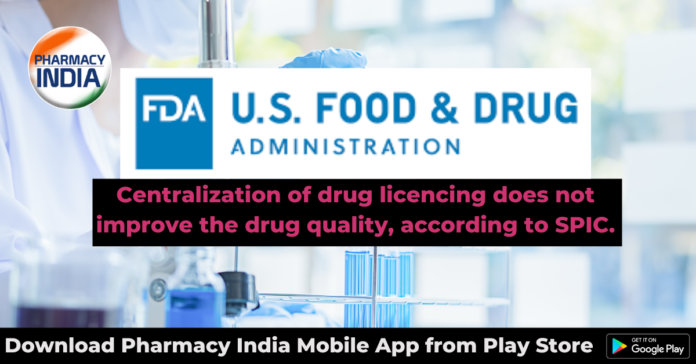According to SME Pharma Industries Confederation (SPIC), the country’s leading organisation for small and medium-sized pharmaceutical businesses, empowering the Central Drugs Standard Control Organization (CDSCO) through the centralization of drug licencing may not be the best way to increase the quality of medicines manufactured in the nation for both domestic and foreign markets. The way forward for ensuring the quality of medications, it was said, should be to empower state licencing authorities for better testing and staff training as well as subsidised funding for tests with a cluster strategy.
In a letter to Prime Minister Narendra Modi, SPIC said that CDSCO corruption was still widespread despite the fact that the Standing Committee of Parliament’s 59th report from 2012 stated that CDSCO had no regard for quality and that its only goal was to advance multinational corporations. CDSCO inspects all units that have received WHO Certification, which is primarily intended for export. In the ports, CDSCO inspects every export shipment. How the Cough Syrup manufactured by Maiden Pharma carried the WHO Certified mark is not known. This shows how incompetent CDSCO was, the letter claimed.
The state inspectors are corrupt as well, and there is no authority to whom the manufacturer in the States may turn for help. MSMEs cannot afford such gratification since money for gratification must be made from the uninvoiced sale of medications, and such production can never adhere to good manufacturing practises. It is remarkable that the same CDSCO—which operates across a sizable portion of India—is being asked to be given licencing authority. It made reference to a recent conference of regulators conducted in Hyderabad with the goal of preventing infant deaths in the Gambia and Uzbekistan that were reportedly brought on by the usage of cough syrups made in the nation.
It appears that the State Governments are solely to blame for the lack of oversight, and centralization of licencing is once again being discussed. In accordance with past Medicines Act Amendment Bills from 2007 and 2013, Parliament declined to centralise licencing. As drugs are listed on the Concurrent List of the Constitution, centralising licencing would likewise be unconstitutional. Licensing cannot be centralised unless Drugs is moved to the Central List.
https://www.youtube.com/watch?v=U3w073p8ly8&list=PLPUtyE8MuppvKUF_ZgJN58pjFJkychIfm&index=2https://www.youtube.com/watch?v=B5pSKJiteco&list=PLPUtyE8MuppvKUF_ZgJN58pjFJkychIfm



